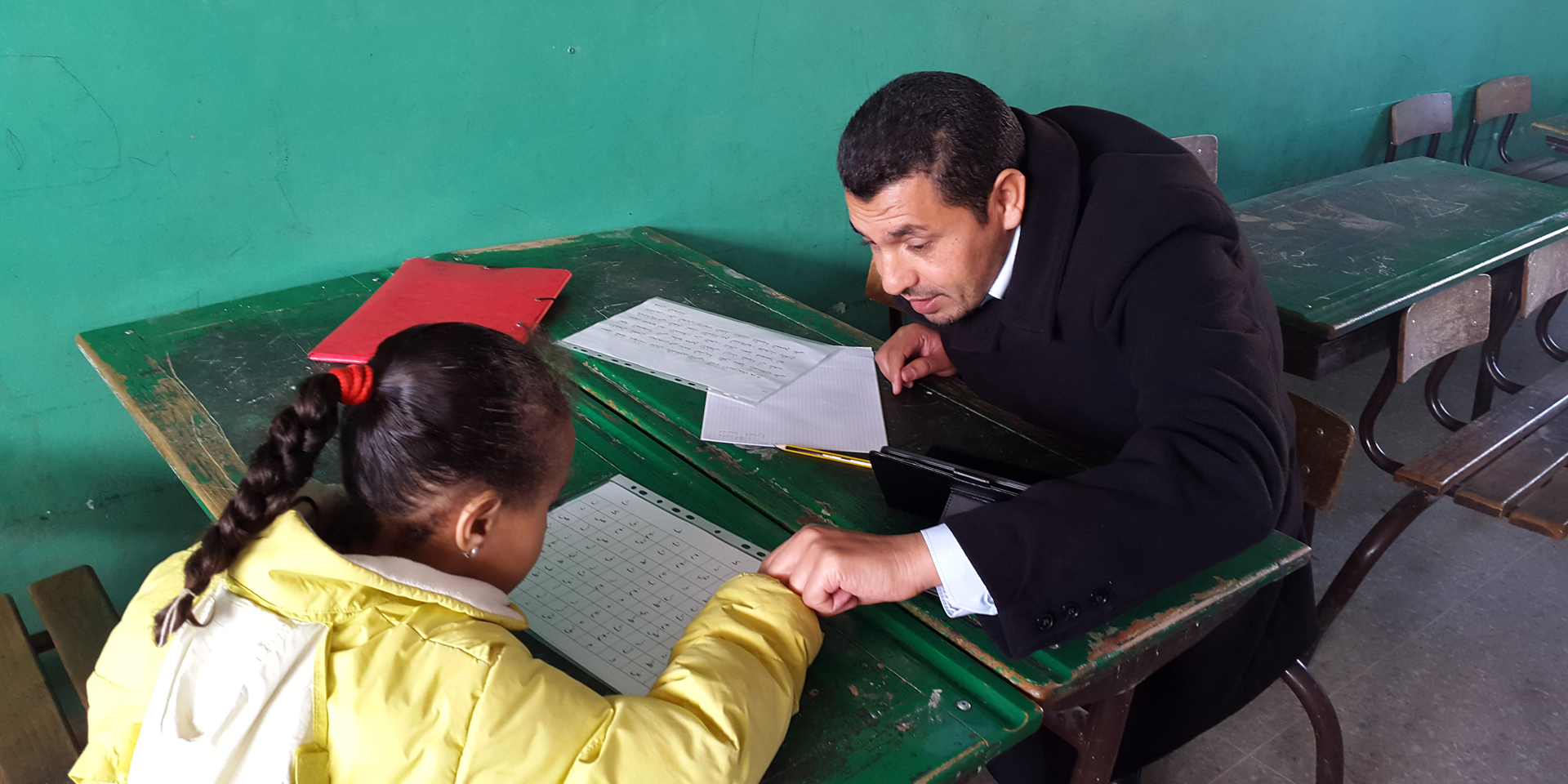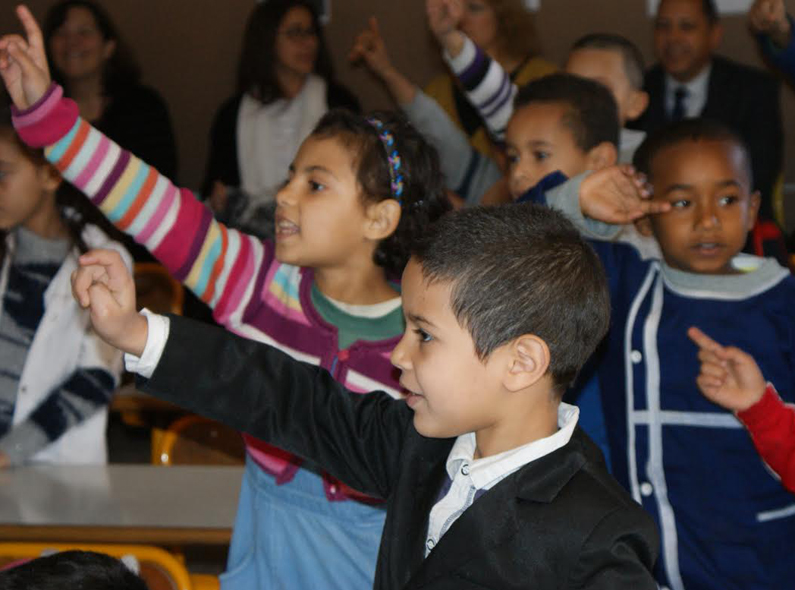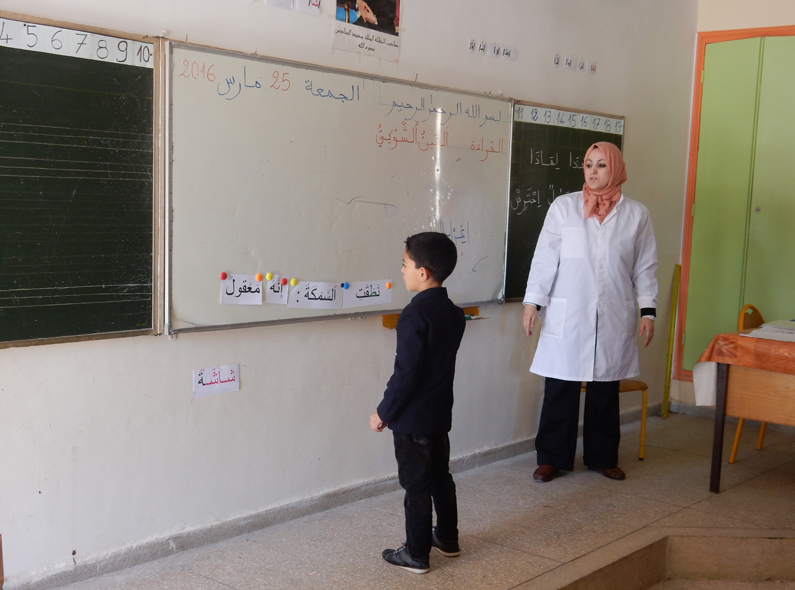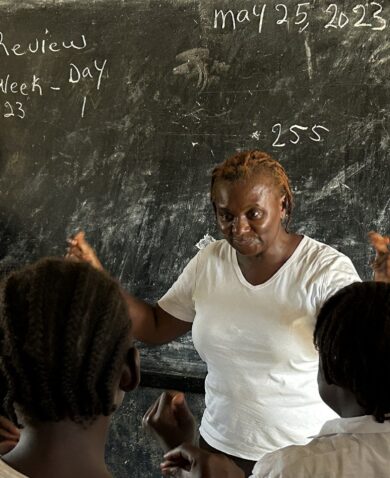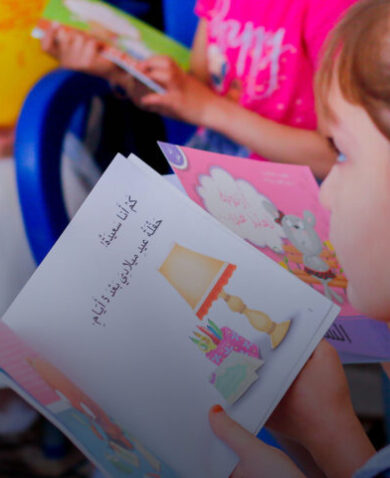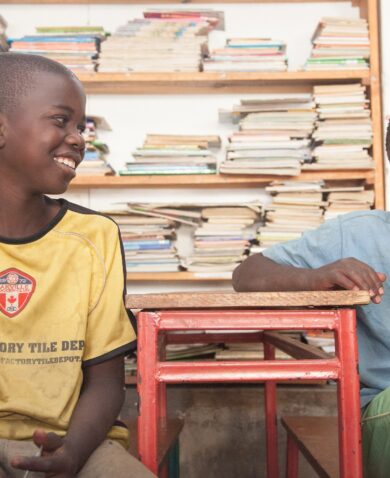At the core of RFS-SSE is the phonemic method, a teaching approach that uses individual syllables and sounds as building blocks for basic reading skills. The phonemic-based way of teaching motivates early grade students to develop a personal interest in reading and learning. Students learn that words are made up of sounds, which can be put together in different ways to make different words. Under the program, 41 trainers received specialized instruction on this approach. Now, in 90 schools across eight provinces in Morocco, these trainers are sharing the approach with 180 first-grade teachers, who are then teaching 5,700 first-grade students to read in a new way.
“Ever since I started to teach Arabic with this approach, three of my students have shown outstanding improvements,” says one teacher in Temara, Morocco. “They can write their own stories now, made up from different characters they studied. I even heard back from their parents and they expressed how happy they were to watch their kids developing a new passion for reading.”
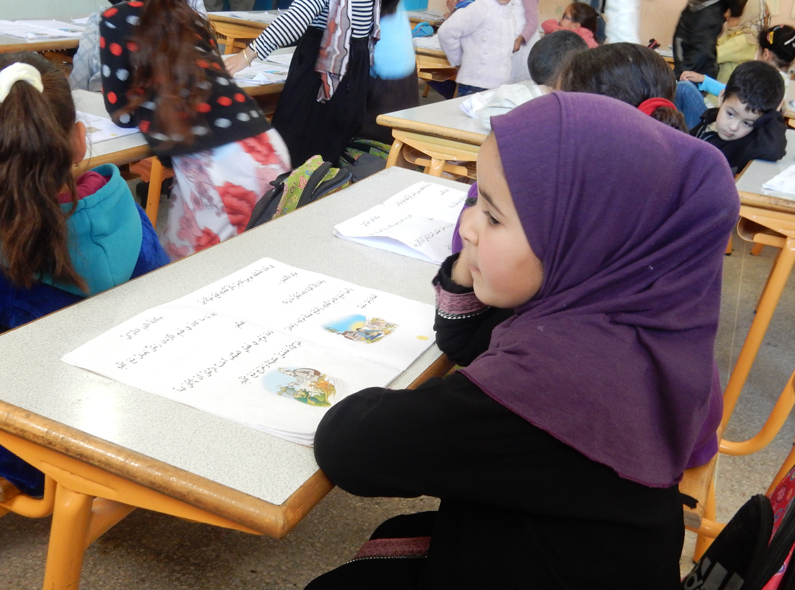
By introducing stories into the curriculum, young learners not only acquaint themselves with new words, but also enjoy a collaborative learning experience. With this phonetic approach and the vocabulary enhancement provided by interactive storytelling, RFS-SSE is developing Modern Standard Arabic reading lessons for primary school students in Grades 1 and 2.
Noticing the enthusiasm in classrooms that adopt the phonemic-based way of teaching, the Ministry of Education and Vocational Training has already proclaimed this approach a success. The ministry’s 15-year education reform initiative, called Vision 2030, is embracing such proven teaching methods, and RFS-SSE is providing the data and evidence for Morocco to see this vision realized.

